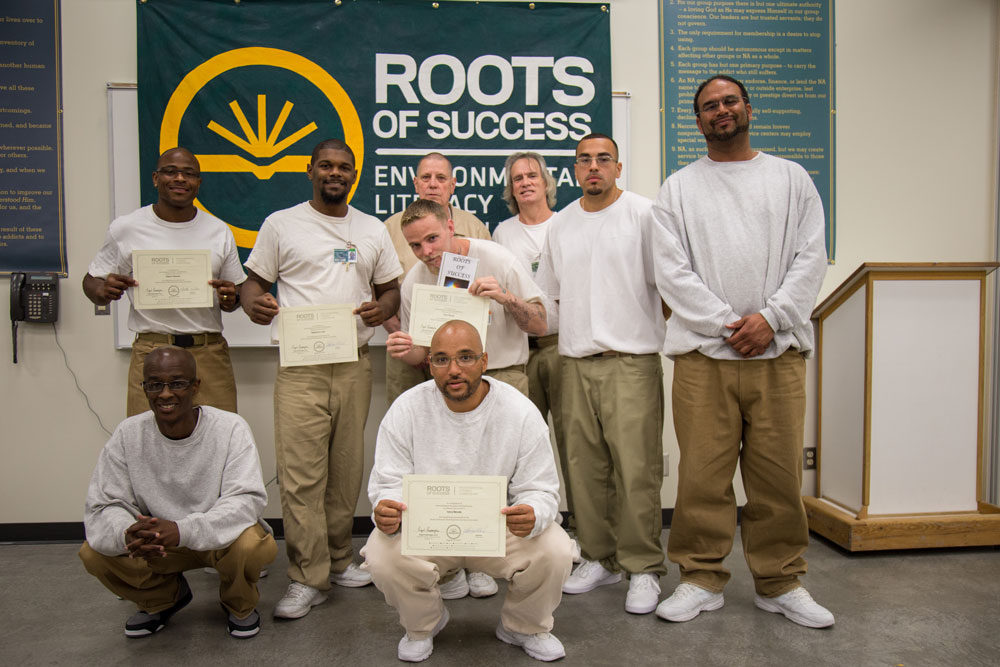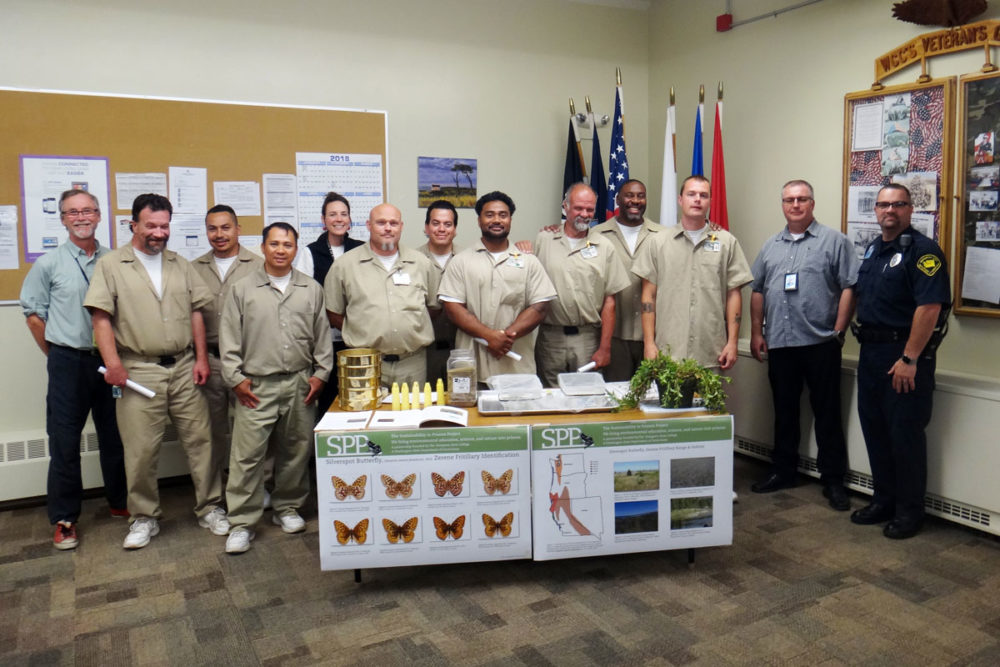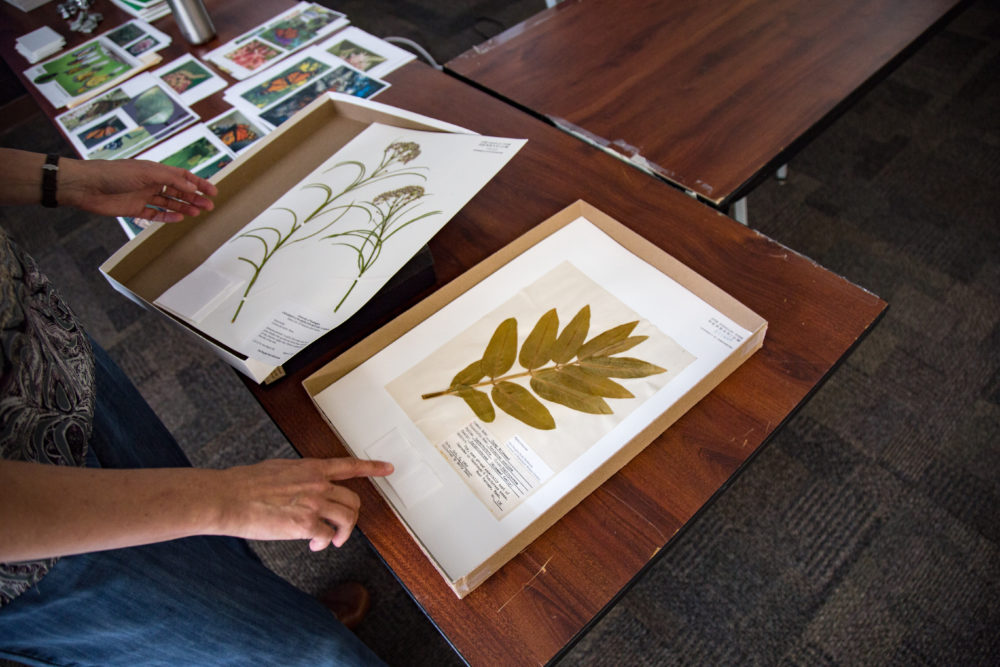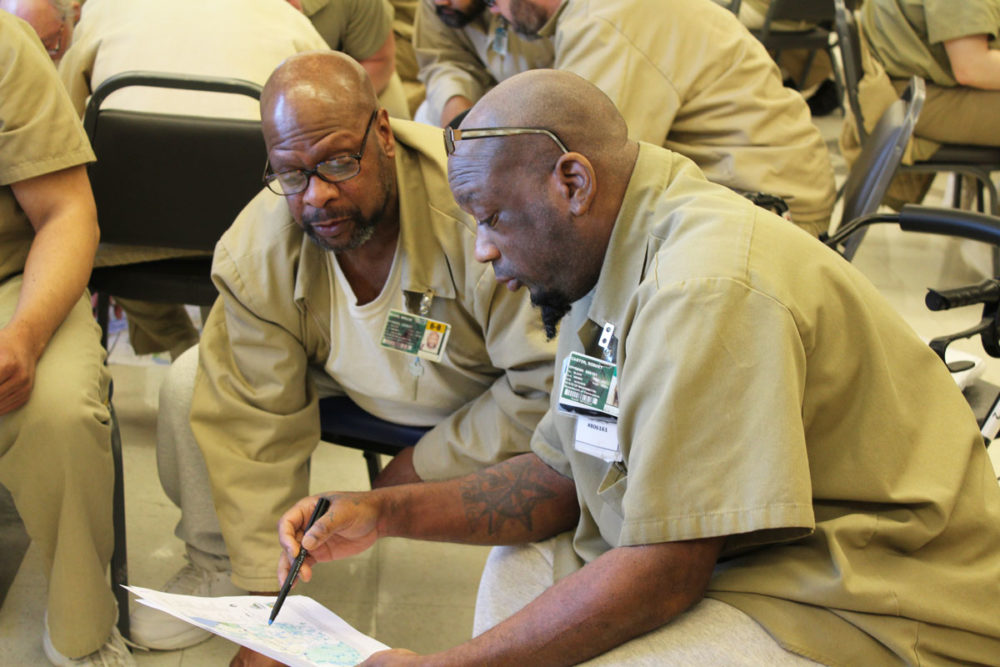Environmental Education
Education is integral to SPP’s programs. SPP-Evergreen aims to make the most of both formal and informal education opportunities and to offer new knowledge and new practice to incarcerated students, staff, and partners. While our goal is to provide education in every program, education and training in conservation and environmental education programs (described here) are SPP-Evergreen’s central focus.
Starting in 2021, SPP began awarding college credit for some SPP programs to incarcerated students during incarceration. Using Evergreen’s Prior Learning from Experience model, SPP has awarded 1,326 college credits to 237 students since 2024. College credit is currently available for students for 6 SPP programs. SPP covers the student fee associated with the credit and does not pass any fees on to the student.
The education offerings described below focus primarily on education. For classes focused on ecological conservation, please see here.
Foundations in Gardening

Foundations in Gardening is a 4-credit course that provides the academic fundamentals of small-scale food production, as well as the planning, critical thinking, and observation skills necessary to grow food and beneficial flowering plants. Topics include plant cultivation, healthy soils, garden placement, beneficial insects, and pest management. This gardening course for in-prison gardeners and learners was launched in the summer of 2020. An extensive partnership contributed to program development and we are so grateful to all–inside and outside of prison–who made suggestions, wrote, and reviewed course materials.
The course is meant to complement existing education & gardening programs and meet more of the widespread demand for gardening education. The course is peer-led, and this should mean that many more interested gardeners will be able to study and receive credit for their new knowledge. The main program cost is the college credit fee and printing the 500-page course books that provide every student with course orientation, an overview of gardening principles, and literature on several advanced topics, with discussion questions and exercises throughout.
Foundations in Composting

Gardeners at Cedar Creek Corrections Center load compost into a wheelbarrow. Photo by Erica Turnbull.
Foundations in Composting is a 2-credit course that builds on previous work in Washington State prisons and aims to provide foundational knowledge of composting science, techniques, and applications. The course provides education and training for small- to large-scale composting programs. The Foundations in Composting course is developed for the classroom or similar teaching and learning spaces with a culminating project and opportunities for hands-on learning. This course is flexible, designed for the corrections environment, and can be led by a peer facilitator, other instructor, or volunteer. Students who complete this class and all required components will receive transferrable college credit from The Evergreen State College.
Environmental Workshops

In the summer of 2024, SPP started reintroducing workshops in Washington State Prisons after a several year pause due to COVID-19. Both staff and incarcerated students have enthusiastically expressed their support and interest in this program’s return. So far, workshops offered in 2024 and 2025 have built on themes that combine science, nature, culture, and/or art. Topics have been wide-ranging and engaging: marine biology, indigenous weaving practices, innovations in composting, tree top ecology, nature drawing, gardening, and more. SPP plans to reestablish a monthly series in the near future for several facilities while also offering at least one “one off” workshop for every facility by 2027.
Workshops received enthusiastic support and we continue to hear many requests for more topics and more events. If you are interested in sharing your expertise in science, art, culture, or nature, please reach out by contacting spp@evergreen.edu.
Roots of Success (2013-2023)

Roots of Success (“Roots”) is an environmental studies curriculum that covers vital environmental topics and challenges students to think critically and innovate community-based solutions. During its ten-year period as a staple of sustainability programming in Washington prisons, Roots students were equipped with job readiness and re-entry skills to prepare for work in the green economy. The 50-hour course was taught by incarcerated instructors who were certified to deliver the curriculum; Both instructors and students were dedicated to ensuring the success of peer-led classrooms. More than 1,600 incarcerated adults in Washington prisons graduated from the program during its 10 years as part of SPP.
Many Roots students and teachers shared insights gained in the program. A Roots graduate, Austin Mays, wrote about Roots’ effect on his in-prison work as a cook:
…living in a place where you have little outside interaction causes you to be left behind. We, in prison, fail to see the world consuming itself. I recently graduated from Roots of Success and during this course my eyes were opened. Prison is its own city. The overhead is huge, and any way we can work together to create the best living conditions—by using the natural resources around us—is the best way.


